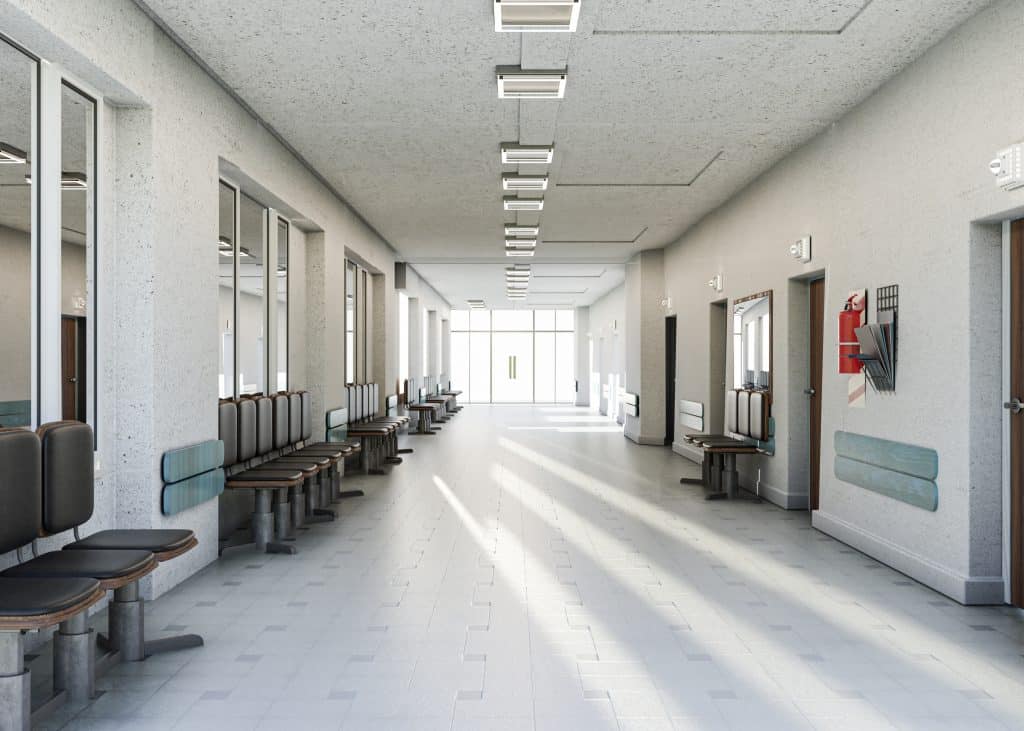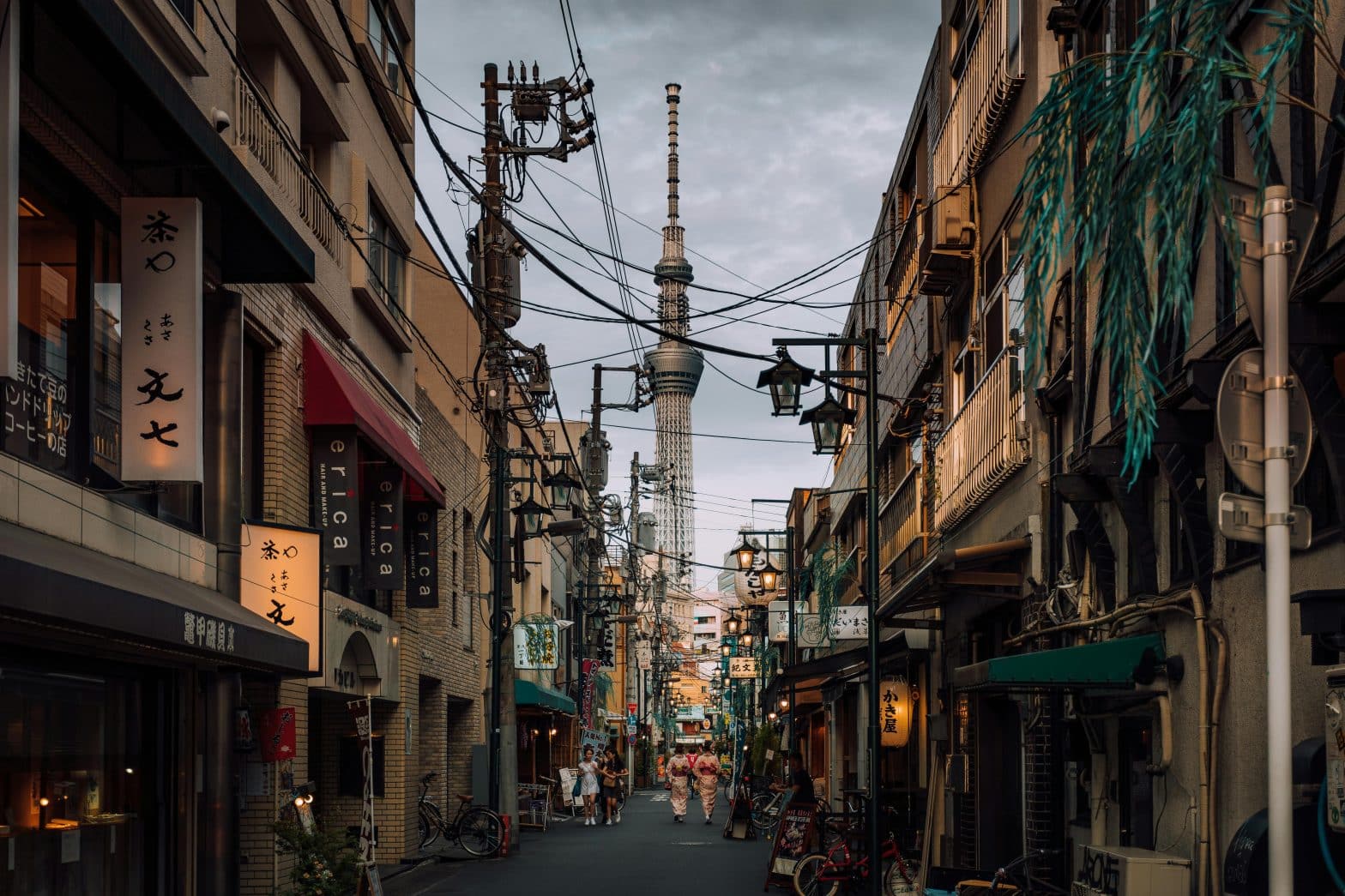It is no coincidence that the inhabitants of the Land of the Rising Sun have an incredible life expectancy, particularly in the ‘blue zone’ of Okinawa. Some say that the secret of their unrivalled longevity is linked to their healthy seasonal diet; others claim that their active lifestyle is the key ingredient. What is certain is that Japan can boast one of the best healthcare systems in the world, which effectively combines accessibility, quality and performance, and that this excellence is not entirely unrelated to the high life expectancy of its population.
In this guide, Foyer Global Health offers you an overview of how the Japanese healthcare system works and offers some recommendations for making the most on the health front as an expat.
The Japanese healthcare system: excellence, universality and accessibility
In 1961, Japan established a compulsory universal health insurance system to cover 100% of the population on its territory (citizens and expatriates) for both public and private healthcare. Funded by state subsidies and regulated by the government, the Japanese health system allows patients access to healthcare services, regardless of their social status, income, nationality and age.

The Japanese universal health insurance system is made up of three types of cover aimed at three categories of patients:
- Employees benefit from a special health insurance (Shakai Hoken) paid in equal parts by the employer and the employee. The family members of employees (spouses, parents, children) can also be affiliated through the same healthcare coverage
- Self-employed workers, agricultural workers and unemployed persons are covered by the National Health Insurance (NHI – Kokumin Kenko Hoken). The amount of the contributions depends on the insurance scheme, age and place of residence; to pay the contributions, you just need to go every month to a Konbini (24-hour convenience store) with the slip that you will have received from the town hall.
- People aged 75 and over are covered by the public health insurance system. Their contributions depend on their income level (between 10 and 30% of the actual cost of care).
What does Japanese health insurance cover?
Japanese health insurance covers a wide range of medical care, including consultations with general practitioners or healthcare specialists, hospitalisation costs, medical examinations such as MRIs, and basic dental care. Please note that childbirth and pregnancy care are not fully covered by Japanese health insurance. However, (future) parents receive a ‘birth package’ (approximately €3,000) which is directly deducted from the medical bills related to pregnancy care and childbirth.

Top-notch and accessible health services
Healthcare facilities in Japan are among the best in the world: they are equipped with innovative medical technologies and ultra-modern medical equipment. The Japanese healthcare system can also count on the expertise of highly qualified healthcare staff and modern and very well-maintained medical infrastructures. In addition, medical care is generally fast and efficient thanks to a highly computerised management of care, including the digitisation of medical records.
How much do healthcare services cost in Japan?

The Japanese government controls healthcare costs, whether for medical visits, medication or medical procedures. In general, residents covered by medical insurance must pay between 10% and 30% of the cost of the care provided to them; the rest is paid for by the state. However, if the medical services are not covered by public insurance, you will be obliged to pay all the costs incurred.
Here are some examples of medical services with their associated average costs:
- Medical consultation (between €45 and €150)
- Hospitalisation: between €30 and €70 per day for a standard room in the public sector
- Hospital admission fees for a medical emergency: between €70 and €350
- Childbirth in a private clinic (between €3,000 and €6,000)
How do I register for Japanese health insurance as an expatriate?
Healthcare coverage is compulsory in Japan for all residents, including expatriates. If you are an employee, your employer will take care of formalities for your subscription. If you are self-employed, you will need to go to your local town hall with your passport, residence card and certificate of residence to obtain your insurance card.
Where can I get healthcare in Japan?
The Japanese medical services system is based on public health infrastructures managed by the government and the municipalities, which offer excellent care for specialised treatment. There are also private clinics and hospitals (the majority of which are on the island) where the care is highly efficient but at higher rates than in the public sector.

Primary care is generally provided in doctors’ surgeries and small clinics, but it is not uncommon to go to hospital even for minor treatments, for example, for a cold or sore throat. Public or private hospitals are the most suitable medical facilities for specialised care.
In both the private and public sectors, you are free to choose your practitioner/health facility.
The best Japanese medical establishments:
- Hôpital de l’Université de Tokyo
- Hôpital international St. Luke
- Centre médical de Kameda
- Hôpital de l’Université de Kyushu
- Hôpital de l’Université de Nagoya
Good to know:
- Medicines are highly regulated in Japan and many medicines that are freely available in Western Europe require a prescription. Importing narcotics such as morphine, oxycodone, codeine is prohibited.
- Walk-in medical consultations are commonplace in Japan, particularly in clinics.
- Only a minority of doctors are English-speaking.
- Website of the Japanese Ministry of Health: https://www.mhlw.go.jp/english/index.html
- Medical emergencies: 119
An ageing population: a major challenge for the Japanese healthcare system
While the exceptional longevity of the Japanese is a positive result of the efficiency of the healthcare system, it also represents a major demographic challenge that threatens its sustainability. While this problem also affects other European countries, it is particularly significant in Japan, where patients over the age of 65 represent 30% of the Japanese population. To address this issue, the government has adopted several reforms to encourage home care and reduce the pressure on healthcare facilities.

Why should you get covered by international health insurance?
Taking out an international health insurance policy gives you the comfort, peace of mind and flexibility you need as an expatriate. While Japanese health insurance only covers part of the costs, in particular those related to dental care, maternity and hospitalisation. Regardless of the type of healthcare facility and the country where you may need medical care, a private international health insurance company provides comprehensive medical coverage.
Why choose Foyer Global Health for your relocation to Japan?
- Our speciality is protecting the health of expatriates all over the world.
- You benefit from flexible and efficient health cover tailored to your needs, whatever your profile and whatever your plans
- Our offer works for the first euro you spend on your medical bill
- Our health insurance plans offer comprehensive coverage for all medical care and clinical procedures
- You have access to all the benefits of international health coverage: evacuation/repatriation, multilingual medical assistance, 100% digitalised healthcare assistance, etc.
Need advice or an opinion? Our teams are on hand to provide you with information and find the ideal health cover for your relocation to Japan! Contact our teams today.
